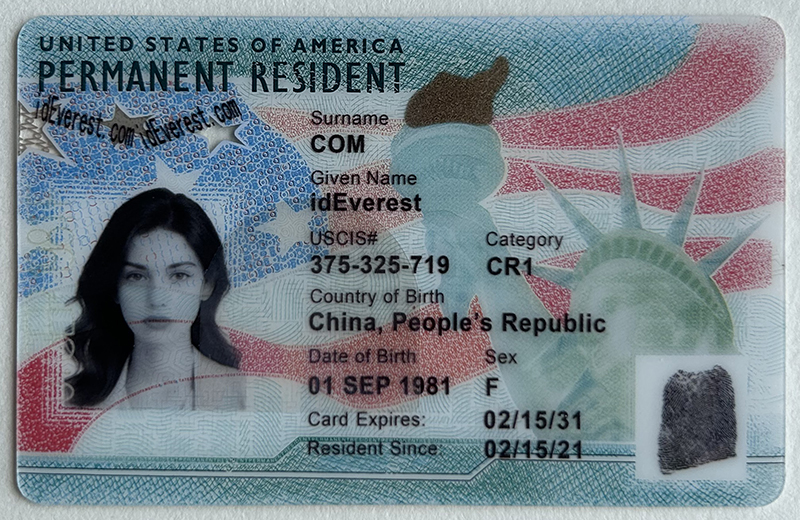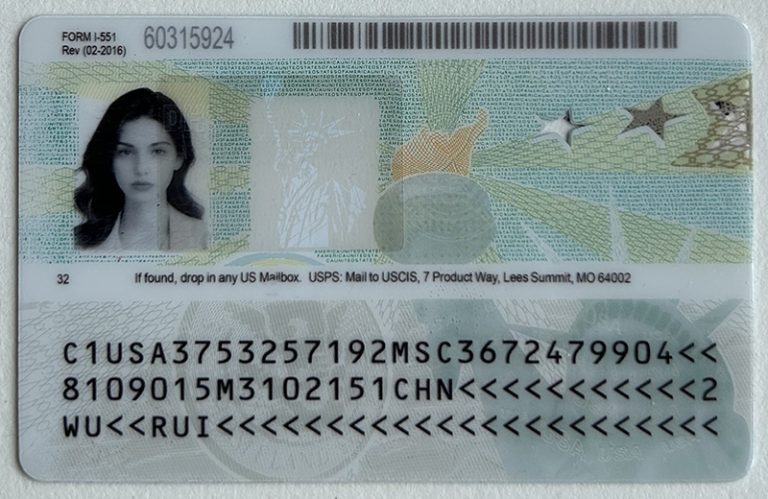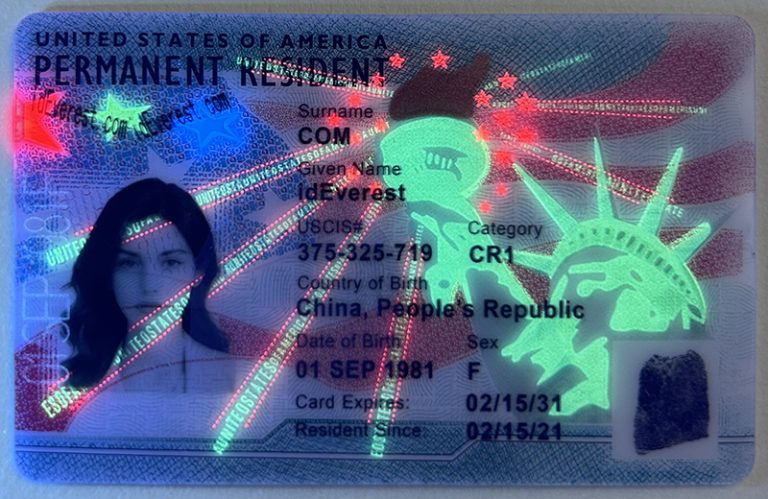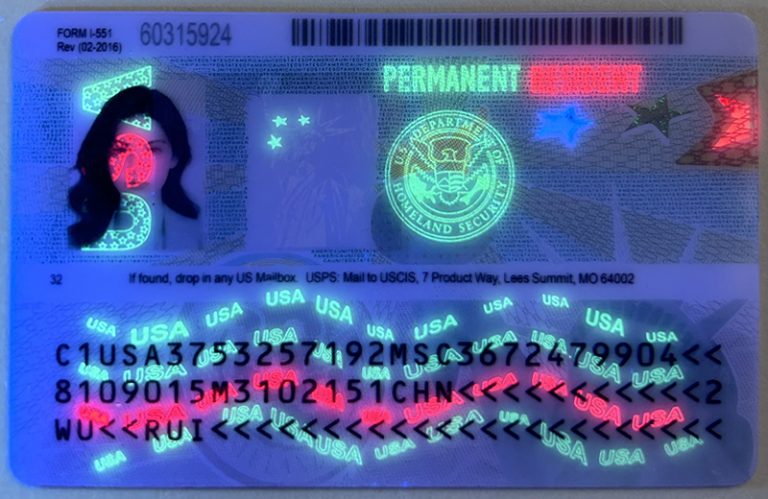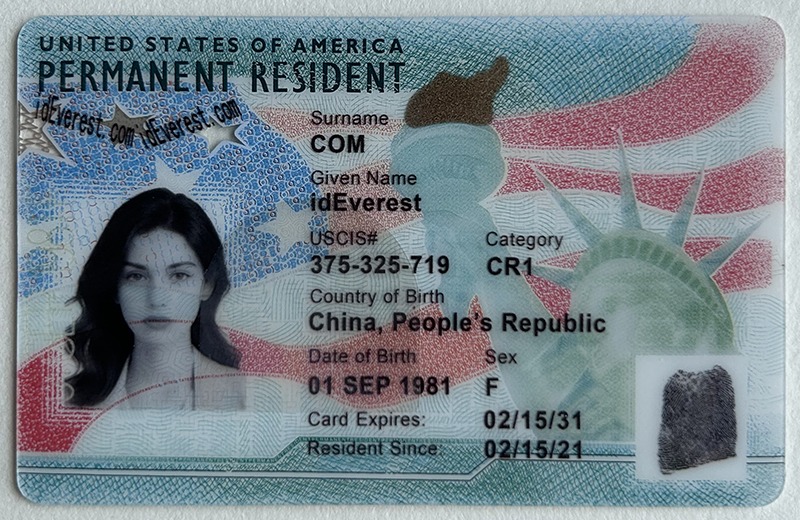American Green Card
Outline of the Article
- Introduction
- Brief overview of the American Green Card
- Importance and benefits of having a Green Card
- What is an American Green Card?
- Definition and purpose
- History and evolution of the Green Card
- Types of Green Cards
- Family-Based Green Cards
- Immediate relatives
- Family preference categories
- Employment-Based Green Cards
- EB-1, EB-2, EB-3, etc.
- Diversity Visa Lottery
- Other Types
- Asylum, refugees, and special immigrant visas
- Eligibility Criteria for a Green Card
- Family connections
- Employment opportunities
- Investment options
- Special categories
- Application Process for a Green Card
- Step-by-Step Guide
- Filing the petition
- Form submission and fees
- Biometrics and interviews
- Processing Times
- Factors affecting processing times
- Current average wait times
- Key Documents Needed for the Green Card Application
- Forms required
- Supporting documents
- Costs Associated with Obtaining a Green Card
- Application fees
- Additional costs (medical exams, legal fees)
- Benefits of Having a Green Card
- Right to live and work in the U.S.
- Pathway to U.S. citizenship
- Access to social benefits
- Challenges and Common Pitfalls in the Green Card Process
- Delays and denials
- Misunderstandings and mistakes
Maintaining Your Green Card Status
- Travel restrictions
- Residency requirements
- Renewal process
Green Card vs. U.S. Citizenship
- Differences between the two
- Advantages of each
How to Transition from a Green Card to U.S. Citizenship
- Eligibility for naturalization
- Application process for citizenship
Impact of Immigration Policies on Green Card Holders
- Recent policy changes
- Future outlook
Success Stories of Green Card Holders
- Inspirational stories
- How it changed their lives
Conclusion
- Recap of key points
- Encouragement to pursue the Green Card if eligible
FAQs
- What is the fastest way to get a Green Card?
- Can a Green Card holder lose their status?
- How long does it take to get a Green Card through marriage?
- Do Green Card holders need to renew their status?
- Can Green Card holders travel freely outside the U.S.?
American Green Card: Your Gateway to the United States
The American Green Card is much more than just a piece of plastic. It's a ticket to a new life, a symbol of opportunity, and a pathway to realizing the American Dream. For many, obtaining a Green Card is a monumental step toward securing a future in the United States. But what exactly is an American Green Card, and how can you get one? Let's dive deep into the world of U.S. immigration to understand everything there is to know about the Green Card process.
What is an American Green Card?
An American Green Card, also known as a Permanent Resident Card, allows foreign nationals to live and work permanently in the United States. The history of the Green Card dates back to the mid-20th century, evolving from simple identification cards to the sophisticated, high-tech identification tools they are today. Essentially, a Green Card grants its holder the status of a lawful permanent resident (LPR), providing a host of benefits while also imposing certain responsibilities.
Types of Green Cards
There isn't just one type of Green Card. In fact, there are several categories under which one can apply, each tailored to different circumstances and qualifications.
Family-Based Green Cards
Family-based Green Cards are designed for individuals who have close family members who are U.S. citizens or existing Green Card holders. This category is divided into two main groups:
Immediate Relatives: This includes spouses, unmarried children under 21, and parents of U.S. citizens. There's no cap on the number of Green Cards available for immediate relatives.
Family Preference Categories: This includes adult children, siblings of U.S. citizens, and family members of Green Card holders. Unlike immediate relatives, these categories are subject to annual caps, which can lead to longer waiting times.
Employment-Based Green Cards
Employment-based Green Cards are allocated to individuals based on their professional skills, talents, or job offers. They are further divided into several preference categories, such as:
- EB-1: Priority workers including multinational executives, outstanding professors, and individuals with extraordinary abilities in arts, sciences, or business.
- EB-2: Professionals holding advanced degrees or individuals with exceptional abilities in their field.
- EB-3: Skilled workers, professionals, and unskilled workers (other workers).
Diversity Visa Lottery
The Diversity Visa (DV) Lottery is a program designed to promote immigration from countries with historically low rates of immigration to the United States. Every year, up to 50,000 Green Cards are randomly awarded to applicants from eligible countries. This is often referred to as the "Green Card Lottery."
Other Types of Green Cards
Beyond family and employment-based categories, there are Green Cards available for individuals seeking asylum, refugees, and those who qualify under special immigrant categories such as religious workers or international broadcasters.
Eligibility Criteria for a Green Card
Wondering if you're eligible for a Green Card? The eligibility criteria vary based on the type of Green Card you’re applying for:
- Family Connections: Immediate relatives of U.S. citizens or Green Card holders.
- Employment Opportunities: Individuals with job offers or who possess extraordinary abilities or advanced degrees.
- Investment Options: Entrepreneurs investing significant capital in a U.S. business (EB-5 Investor Program).
- Special Categories: Includes refugees, asylees, and individuals under special immigrant categories.
Application Process for a Green Card
Applying for a Green Card can be a lengthy and complex process, but breaking it down into steps can make it more manageable.
Step-by-Step Guide
- Filing the Petition: The first step involves a U.S. citizen or employer filing a petition on your behalf, typically using forms like I-130 or I-140.
- Form Submission and Fees: Once the petition is approved, you must file Form I-485 (Application to Register Permanent Residence or Adjust Status), accompanied by the necessary fees.
- Biometrics and Interviews: Applicants are required to provide biometric data (fingerprints, photos, etc.) and attend an interview at a U.S. embassy or consulate.
Processing Times
Processing times for Green Card applications can vary greatly depending on the type of Green Card, the applicant's country of origin, and current USCIS workloads. Typically, processing can take anywhere from a few months to several years.
Key Documents Needed for the Green Card Application
To ensure a smooth application process, it's crucial to have all required documents in order. These include:
- Completed petition forms (e.g., I-130, I-140)
- Form I-485 for adjustment of status
- Proof of eligibility (family ties, job offers, etc.)
- Supporting documents such as birth certificates, marriage certificates, and financial statements
Costs Associated with Obtaining a Green Card
The cost of obtaining a Green Card can add up, including application fees, medical examination fees, and potentially legal fees. Here’s a breakdown of some typical expenses:
- Application Fees: Ranges from $535 (family-based petition) to $1,225 (form I-485 for applicants over 14).
- Medical Examination Fees: Costs vary by location and healthcare provider.
- Legal Fees: Optional but often helpful to navigate the complex immigration process.
Benefits of Having a Green Card
Holding a Green Card comes with a wealth of benefits, such as:
- Right to Live and Work: Permanent residents can live and work anywhere in the United States.
- Pathway to Citizenship: Green Card holders can apply for U.S. citizenship after meeting residency requirements.
- Access to Social Benefits: Eligibility for certain social benefits, including Social Security and Medicare, after a period of residency.
Challenges and Common Pitfalls in the Green Card Process
While obtaining a Green Card is a dream for many, the journey can be fraught with challenges, such as:
- Delays and Denials: Processing delays are common, and applications can be denied for various reasons, including incomplete forms or insufficient evidence.
- Misunderstandings and Mistakes: Misinterpretation of eligibility requirements or filing incorrect forms can lead to significant setbacks.
Maintaining Your Green Card Status
Once you have a Green Card, it’s essential to maintain your status by adhering to certain rules:
- Travel Restrictions: Avoid extended stays outside the U.S. without a re-entry permit.
- Residency Requirements: You must establish and maintain residency in the United States.
- Renewal Process: Green Cards must be renewed every 10 years, using Form I-90.
Green Card vs. U.S. Citizenship
While both Green Cards and U.S. citizenship offer the right to live in the U.S., there are key differences:
- Green Card Holders: Can live and work permanently but do not have all the rights of citizens, such as voting in federal elections.
- U.S. Citizens: Have full rights, including voting and running for public office.
How to Transition from a Green Card to U.S. Citizenship
If you're looking to transition from a Green Card holder to a U.S. citizen, here's what you need to know:
- Eligibility for Naturalization: Typically, Green Card holders are eligible to apply for naturalization after five years (three years if married to a U.S. citizen).
- Application Process for Citizenship: Involves filing Form N-400, passing a citizenship test, and attending an oath ceremony.
Impact of Immigration Policies on Green Card Holders
Recent changes in U.S. immigration policy have impacted Green Card holders, from travel bans to adjustments in processing priorities. Staying informed on these changes is crucial for both applicants and current Green Card holders.
Success Stories of Green Card Holders
Countless individuals have transformed their lives through the Green Card process. From tech entrepreneurs to academic scholars, these success stories are a testament to the opportunities the U.S. offers to those who strive for a better future.
Conclusion
Obtaining an American Green Card is a significant step toward a new beginning in the United States. Whether you are pursuing it through family, employment, or the Diversity Visa Lottery, understanding the process, requirements, and benefits is crucial. For those eligible, a Green Card opens doors to endless opportunities and a chance to build a brighter future in the U.S.
FAQs
What is the fastest way to get a Green Card? The fastest way to obtain a Green Card is typically through family sponsorship, especially for immediate relatives of U.S. citizens.
Can a Green Card holder lose their status? Yes, a Green Card holder can lose their status by committing certain crimes, failing to establish residency, or remaining outside the U.S. for extended periods.
How long does it take to get a Green Card through marriage? It usually takes about 10-13 months to obtain a Green Card through marriage to a U.S. citizen, depending on individual circumstances and USCIS processing times.
Do Green Card holders need to renew their status? Yes, Green Card holders must renew their cards every 10 years, although their permanent resident status does not expire.
Can Green Card holders travel freely outside the U.S.? Green Card holders can travel outside the U.S., but extended trips may jeopardize their residency status. It is advisable to obtain a re-entry permit for trips longer than six months.
简介
美国绿卡简介
拥有绿卡的重要性和好处
什么是美国绿卡?
定义和目的
绿卡的历史和演变
绿卡类型
基于家庭的绿卡
直系亲属
家庭优先类别
基于就业的绿卡
EB-1、EB-2、EB-3 等
多元化签证抽签
其他类型
庇护、难民和特殊移民签证
绿卡资格标准
家庭关系
就业机会
投资选择
特殊类别
绿卡申请流程
分步指南
提交请愿书
表格提交和费用
生物识别和面试
处理时间
影响处理时间的因素
当前平均等待时间
绿卡申请所需的关键文件
所需表格
支持文件
获得绿卡的相关费用
申请费
额外费用(体检、法律费用)
拥有绿卡的好处
在美国居住和工作的权利美国
获得美国公民身份的途径
获得社会福利
绿卡申请过程中的挑战和常见陷阱
延迟和拒绝
误解和错误
保持您的绿卡身份
旅行限制
居住要求
续签流程
绿卡与美国公民身份
两者之间的差异
各自的优势
如何从绿卡过渡到美国公民身份
入籍资格
公民身份申请流程
移民政策对绿卡持有人的影响
最近的政策变化
未来展望
绿卡持有人的成功故事
励志故事
它如何改变他们的生活
结论
关键点回顾
鼓励符合条件的人申请绿卡
常见问题
获得绿卡的最快方法是什么?
绿卡持有人会失去身份吗?
通过结婚获得绿卡需要多长时间?
绿卡持有者需要更新身份吗?
绿卡持有者可以自由前往美国境外旅行吗?
美国绿卡:通往美国的大门
美国绿卡不仅仅是一张塑料卡。它是一张通往新生活的门票,一个机遇的象征,也是实现美国梦的途径。对许多人来说,获得绿卡是确保在美国未来的重要一步。但美国绿卡到底是什么?你如何获得它?让我们深入了解美国移民的世界,了解有关绿卡流程的所有信息。
什么是美国绿卡?
美国绿卡,也称为永久居民卡,允许外国人永久居住在美国并在美国工作。绿卡的历史可以追溯到 20 世纪中叶,从简单的身份证演变为如今复杂的高科技身份识别工具。从本质上讲,绿卡授予其持有人合法永久居民 (LPR) 的身份,提供一系列好处,同时也施加某些责任。
绿卡类型
绿卡不只有一种类型。事实上,有几种类别可供申请,每种类别都针对不同的情况和资格。
家庭绿卡
家庭绿卡专为有近亲是美国公民或现有绿卡持有者的个人而设计。此类别分为两大类:
直系亲属:包括配偶、21 岁以下未婚子女和美国公民的父母。直系亲属可获得的绿卡数量没有上限。
家庭优先类别:包括成年子女、美国公民的兄弟姐妹和绿卡持有者的家庭成员。与直系亲属不同,这些类别有年度上限,这可能导致更长的等待时间。
就业绿卡
就业绿卡是根据个人的专业技能、才能或工作机会分配给他们的。它们进一步分为几个优先类别,例如:
EB-1:优先工人,包括跨国公司高管、杰出教授以及在艺术、科学或商业领域具有非凡能力的个人。
EB-2:拥有高级学位的专业人士或在其领域具有卓越能力的个人。
EB-3:技术工人、专业人士和非技术工人(其他工人)。
多元化签证抽签
多元化签证 (DV) 抽签是一项旨在促进从历史上移民率较低的国家移民到美国的计划。每年,最多有 50,000 张绿卡会随机颁发给符合条件国家的申请人。这通常被称为“绿卡抽签”。
其他类型的绿卡
除了家庭和就业类别外,还有寻求庇护的个人、难民以及符合特殊移民类别(如宗教工作者或国际广播员)资格的人可以获得绿卡。
绿卡资格标准
想知道您是否有资格获得绿卡?资格标准根据您申请的绿卡类型而有所不同:
家庭关系:美国公民或绿卡持有人的直系亲属。
就业机会:有工作机会或拥有非凡能力或高级学位的个人。
投资选择:在美国企业投资大量资本的企业家(EB-5 投资者计划)。
特殊类别:包括难民、寻求庇护者和特殊移民类别的个人。
绿卡申请流程
申请绿卡可能是一个漫长而复杂的过程,但将其分解成几个步骤可以使其更易于管理。
分步指南
提交申请:第一步涉及美国公民或雇主代表您提交申请,通常使用 I-130 或 I-140 等表格。
表格提交和费用:申请获得批准后,您必须提交 I-485 表格(申请注册永久居留或调整身份),并缴纳必要的费用。
生物识别和面试:申请人需要提供生物识别数据(指纹、照片等)并参加美国大使馆或领事馆的面试。
处理时间
绿卡申请的处理时间可能因绿卡类型、申请人的原籍国和当前 USCIS 工作量而有很大差异。通常,处理可能需要几个月到几年的时间。
申请绿卡所需的关键文件
为确保申请过程顺利进行,务必将所有必需文件按顺序准备好。这些文件包括:
已填妥的申请表(例如 I-130、I-140)
用于调整身份的 I-485 表格
资格证明(家庭关系、工作机会等)
支持文件,例如出生证明、结婚证和财务报表
获得绿卡的相关费用
获得绿卡的费用可能很高,包括申请费、体检费和潜在的法律费用。以下是一些典型费用的明细:
申请费:从 535 美元(基于家庭的申请)到 1,225 美元(14 岁以上申请人的 I-485 表格)不等。
体检费:费用因地点和医疗保健提供者而异。
法律费用:可选,但通常有助于处理复杂的移民程序。
拥有绿卡的好处
持有绿卡有很多好处,例如:
居住和工作的权利:永久居民可以在美国任何地方生活和工作。
入籍途径:绿卡持有者在满足居住要求后可以申请美国公民身份。
获得社会福利:居住一段时间后,有资格享受某些社会福利,包括社会保障和医疗保险。
绿卡申请过程中的挑战和常见陷阱
虽然获得绿卡是许多人的梦想,但这一过程可能充满挑战,例如:
延误和拒绝:处理延误很常见,申请可能因各种原因被拒绝,包括表格不完整或证据不足。
误解和错误:误解资格要求或提交不正确的表格可能会导致重大挫折。
维护您的绿卡身份
一旦您拥有绿卡,就必须遵守某些规则来维护您的身份:
旅行限制:避免在没有再入境许可的情况下在美国境外长期逗留。
居住要求:您必须在美国建立并维持居住权。
续签流程:绿卡必须每 10 年续签一次,使用 I-90 表格。
绿卡与美国公民身份
虽然绿卡和美国公民身份都赋予在美国居住的权利,但存在关键区别:
绿卡持有者:可以永久居住和工作,但没有公民的所有权利,例如在联邦选举中投票。
美国公民:拥有充分的权利,包括投票和竞选公职。
如何从绿卡过渡到美国公民身份
如果您希望从绿卡持有者过渡到美国公民,以下是您需要了解的内容:
入籍资格:通常,绿卡持有者有资格在五年后申请入籍(如果与美国公民结婚则为三年)。
入籍申请流程:包括提交 N-400 表格、通过公民身份测试和参加宣誓仪式。
移民政策对绿卡持有者的影响
美国移民政策的近期变化对绿卡持有者产生了影响,从旅行禁令到处理优先级的调整。随时了解这些变化对于申请人和现有绿卡持有者都至关重要。
绿卡持有者的成功故事
无数人通过绿卡流程改变了自己的生活。从科技企业家到学术学者,这些成功故事证明了美国为那些为更美好未来而奋斗的人提供的机会。
结论
获得美国绿卡是迈向美国新起点的重要一步。无论您是通过家庭、就业还是多元化签证抽签来获得绿卡,了解流程、要求和福利都至关重要。对于符合条件的人来说,绿卡为他们打开了无限机遇的大门,并有机会在美国建立更光明的未来。
常见问题
获得绿卡的最快方法是什么?获得绿卡的最快方法通常是通过家庭赞助,尤其是对于美国公民的直系亲属。
绿卡持有人会失去身份吗?是的,绿卡持有人可能会因犯下某些罪行、未能确定居住权或长期留在美国境外而失去身份。
通过婚姻获得绿卡需要多长时间?通过与美国公民结婚获得绿卡通常需要大约 10-13 个月,具体取决于个人情况和 USCIS 处理时间。
绿卡持有人需要更新其身份吗?是的,绿卡持有者必须每 10 年更新一次绿卡,尽管他们的永久居民身份不会过期。
绿卡持有者可以自由前往美国境外旅行吗?绿卡持有者可以前往美国境外旅行,但长期旅行可能会危及他们的居留身份。建议在超过六个月的旅行中获取再入境许可。

